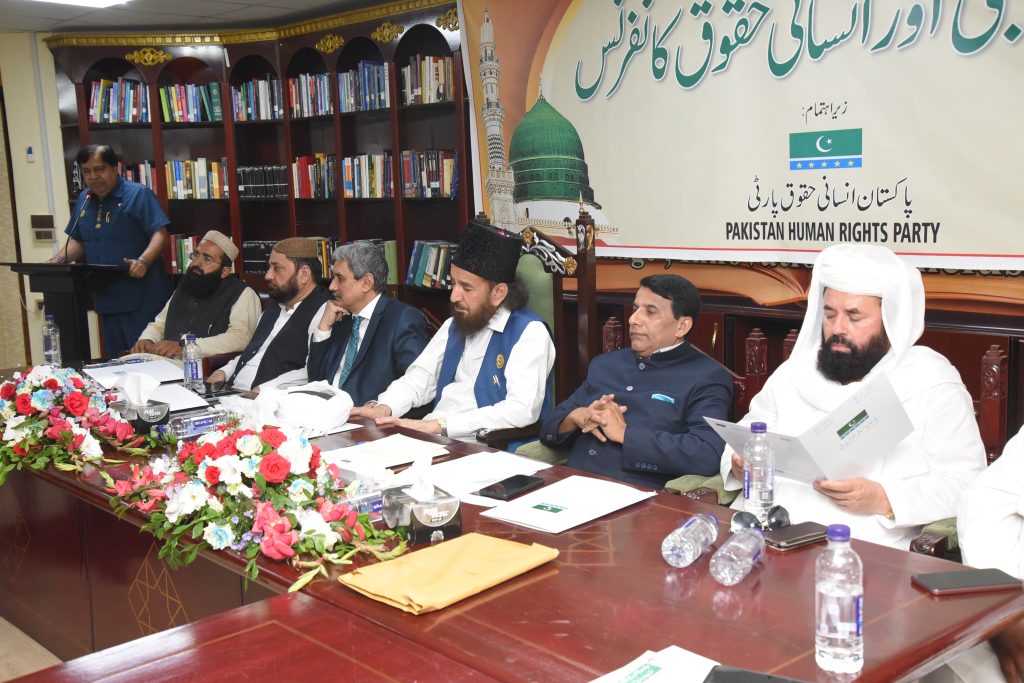The Pakistan Insani Haqooq Party, also known as the Pakistan Human Rights Party, hosted the National Seerat-un-Nabi and Human Rights Conference in the capital, focusing on the timeless teachings of Prophet Muhammad (peace be upon him) on human rights, peace, and justice. The event saw participation from religious scholars, NGO representatives, and community leaders from both Muslim and non-Muslim backgrounds, sending a strong message of interfaith harmony and respect for human dignity.
At the heart of the discussions was the Prophet’s Farewell Sermon, delivered over 1400 years ago, which remains one of the most comprehensive charters on human rights. Speakers highlighted how the Prophet’s message continues to serve as a blueprint for ensuring equality, justice, and respect for all individuals, regardless of their background. The conference declared that love for the Prophet (PBUH) unites Muslims globally, and this unity should be harnessed to promote peace and avoid division.

Pir Naqibur Rehman from Eidgah Sharif and Syed Naseer Gilani presided over the event, with Dr. Khalid Aftab Selhari, chairman of the Human Rights Party, organizing the conference. They called for the teachings of Prophet Muhammad (PBUH) to be incorporated into educational curricula, particularly his Farewell Sermon, to foster a culture of tolerance, non-violence, and respect for human rights in the country.
A significant feature of the conference was the equal participation of women, which reinforced the Islamic principle of gender equality. Female scholars and leaders were actively involved in discussions, sending a powerful message that Islam advocates for the equal rights of women in all aspects of life. The event emphasized that women must have an equal role in shaping policies and contributing to discussions on human rights, mirroring the inclusive approach of Prophet Muhammad (PBUH).
In addition, speakers condemned the negative propaganda circulating on social media regarding Khatam-e-Nabuwwat and stressed the importance of countering such divisive content with messages of unity and love for the Prophet (PBUH). They reiterated that Islam teaches respect for other religions and called for the protection of the rights of Christian and non-Muslim communities.
The conference also shed light on the need for interfaith dialogue and harmony, especially given the internal challenges facing the country. It was concluded that religious teachings promoting fraternity, equality, and dialogue must be prioritized to build a more peaceful and tolerant society.
The event featured contributions from prominent figures including Iqbal Dar, Syed Zaheer Gilani, Qari Nadeem, Dr. Masood Alvi, Tariq Rahim, Ehsanullah Kakar, and Sabatin Lodhi, who all echoed the importance of promoting the Prophet’s (PBUH) teachings as a guide to modern human rights. The conference was seen as an important step in addressing the country’s need for greater unity, tolerance, and respect for human dignity.


